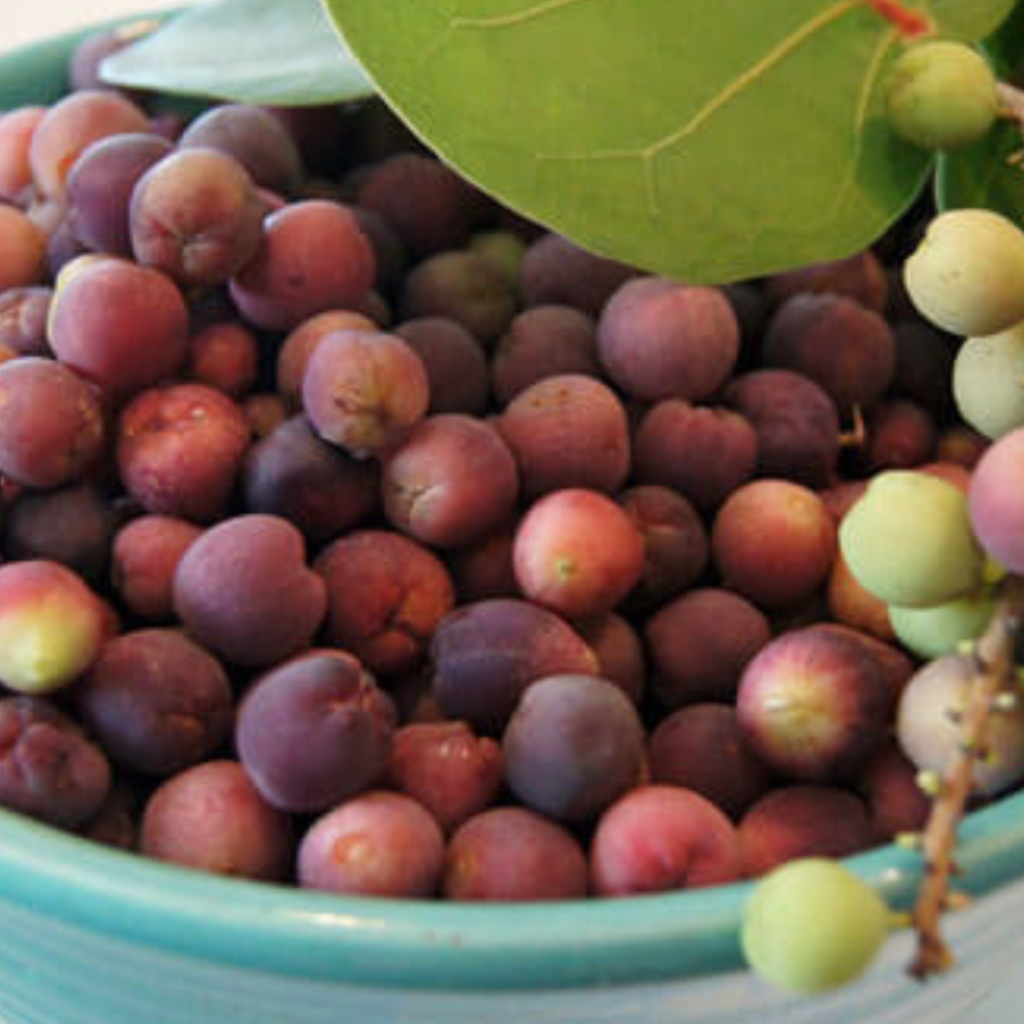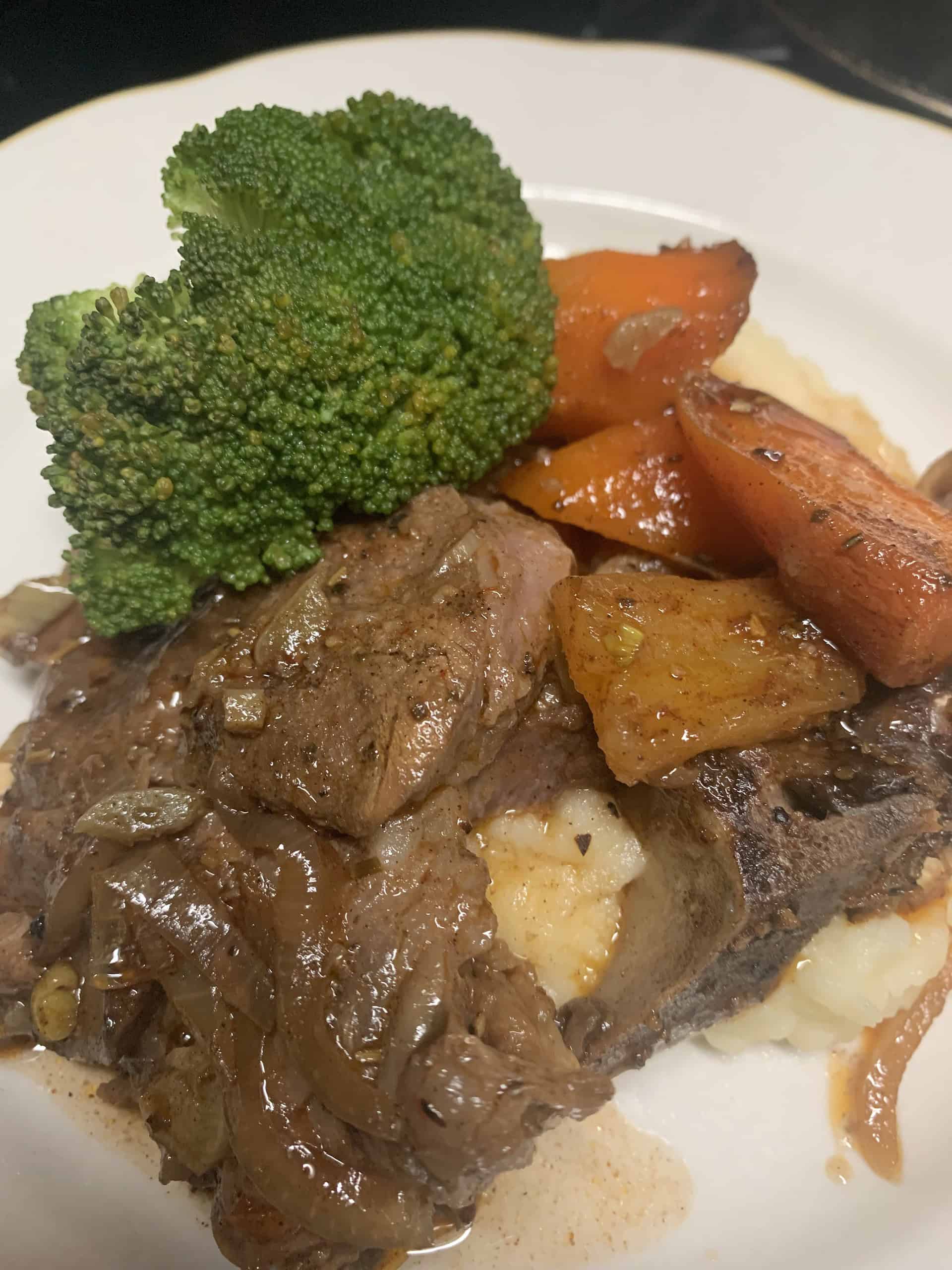Sharing is caring!
Navigating Menopause with Food: Transforming Your Health One Bite at a Time
Menopause foods to eat list, one bite at a time. Navigating the challenges of menopause can be overwhelming, but what if there was a simple and delicious solution in your pantry? Welcome to the world of using food as medicine to transform your health during this transformative stage of life. In this article, we will explore the power of nutrition to alleviate common menopausal symptoms and promote overall well-being.
Harnessing the benefits of food during menopause can relieve hot flashes, mood swings, and weight gain while supporting bone health and mental clarity. You can take control of your health and regain a sense of vitality by incorporating hormone-balancing ingredients, antioxidant-rich foods, and phytoestrogen-packed plant-based options.
Discover the best dietary choices to nourish your body and ease your transition through menopause. From superfoods like flaxseeds and soybeans to hormone-regulating herbs and spices, we will uncover the hidden treasures of the grocery store that can help you thrive during this transformative time.
Are you ready to take charge of your health, one bite at a time? Let’s embark on a culinary healing and empowerment journey in menopause and wellness.

Understanding Menopause and Its Impact on Health
Menopause is a natural biological process that marks the end of a woman’s reproductive years. It typically occurs between the ages of 45 and 55. During this time, hormonal changes can lead to various symptoms, including hot flashes, night sweats, mood swings, sleep disturbances, and weight gain. Additionally, menopause can increase the risk of certain health conditions, such as osteoporosis and heart disease. Here is article that you can read by Cleveland Clinic explaining what is menopause: Tap Here
The hormonal fluctuations during menopause can disrupt the delicate balance in the body, leading to discomfort and a decline in overall well-being. However, by understanding the impact of menopause on health, we can make informed choices to support our bodies during this transition.
The Role of Nutrition in Managing Menopause Symptoms
Nutrition plays a crucial role in managing menopause symptoms and promoting overall health during this stage of life. Focusing on a nutrient-dense diet supporting hormonal balance can alleviate common symptoms and improve our well-being.
A balanced menopause diet should include a variety of whole foods that provide essential nutrients such as vitamins, minerals, fiber, and antioxidants. By incorporating these foods into our daily meals, we can support our bodies in their natural processes and minimize the discomfort associated with menopause.
Critical Nutrients for Supporting Hormonal Balance During Menopause
During menopause, hormonal imbalances can disrupt the body’s natural equilibrium. However, certain nutrients can help support hormonal balance and reduce the severity of symptoms. Let’s explore some essential nutrients that play a role in managing menopause and how we can incorporate them into our diet.
- Calcium: As estrogen levels decline during menopause, the risk of osteoporosis increases. Consuming adequate calcium is crucial for maintaining strong bones and preventing bone loss. Good sources of calcium include dairy products, leafy green vegetables, fortified plant-based milk, and calcium supplements if necessary.
- Omega-3 fatty acids: Omega-3 fatty acids have anti-inflammatory properties and can help alleviate menopausal symptoms such as joint pain and mood swings. Include fatty fish like salmon, chia seeds, flaxseeds, and walnuts to boost your omega-3 intake.
- Phytoestrogens: Phytoestrogens are plant compounds that mimic the effects of estrogen in the body. They can help alleviate symptoms like hot flashes and night sweats. Foods rich in phytoestrogens include soybeans, tofu, tempeh, flaxseeds, and sesame seeds.
- Vitamin D: Vitamin D is essential for bone health and can help reduce the risk of osteoporosis. It also plays a role in supporting the immune system and overall well-being. If needed, get your daily dose of vitamin D from sunlight exposure, fatty fish, fortified dairy products, and vitamin D supplements.

Menopause Foods to eat list to include in Your Menopause Diet
Now that we understand the importance of critical nutrients during menopause let’s explore the best foods to include in our menopause diet. These foods can help support hormonal balance, reduce symptoms, and promote overall well-being. You can take a look at this simple 5 day diet plan that you can tweak and recycle to fight the bulge Tap Tap
- Fruits and vegetables: Fill your plate with a colorful variety of fruits and vegetables to ensure you get a wide range of vitamins, minerals, and antioxidants. Aim for at least five servings daily, focusing on leafy greens, berries, citrus fruits, and cruciferous vegetables like broccoli and cauliflower.
- Whole grains: Opt for whole grains like couscous, brown rice, oats, and whole wheat bread to provide sustained energy and fiber. Fiber can help regulate digestion and prevent weight gain, common during menopause.
- Lean proteins: Include proteins such as poultry, fish, beans, lentils, and tofu in your meals to support muscle health and provide essential amino acids. Protein also helps keep you feeling full and satisfied.
- Healthy fats: Incorporate healthy fats into your diet, such as avocados, coconut oil, olive oil, nuts, and seeds. These fats can help reduce inflammation, support brain health, and provide a sense of satiety.
Recipe Ideas for Menopause-Friendly Meals and Snacks
Creating menopause-friendly meals and snacks doesn’t have to be complicated. Here are some recipe ideas to inspire you:
- Hormone-Balancing Smoothie: Blend a handful of spinach, frozen berries, a tablespoon of flaxseeds, a scoop of plant-based protein powder, and a cup of almond milk for a nutrient-packed smoothie that supports hormonal balance.
- Phytoestrogen-Rich Salad: Toss together mixed greens, steamed edamame, chopped tofu, sliced avocado, and a sprinkle of sesame seeds. Drizzle with a soy-based dressing for a delicious and phytoestrogen-packed salad.
- Omega-3 Power Bowl: Cook a serving of quinoa, top it with grilled snapper, grouper or roasted chickpeas, and add a variety of roasted vegetables like broccoli, sweet potatoes, cabbage and green beans. Drizzle with a lemon-tahini dressing for a nourishing and omega-3-rich meal.
- Snack Plate: Create a snack plate with sliced cucumbers, cherry tomatoes, hummus, whole grain crackers, and a handful of nuts. This balanced snack combines fiber, protein, and healthy fats to keep you satisfied between meals.

Lifestyle Changes to Support Overall Health During Menopause
In addition to focusing on nutrition, making specific lifestyle changes can significantly improve your overall health and well-being during menopause.
Consider incorporating the following habits into your daily routine:
- Regular physical activity: Engage in regular exercise to support bone health, maintain a healthy weight, and improve mood. Aim for at least 150 minutes of moderate-intensity aerobic activity per week and strength training exercises.
- Stress management: Practice stress-reducing techniques such as meditation, deep breathing exercises, yoga, or journaling. Chronic stress can exacerbate menopausal symptoms, so finding healthy ways to manage stress is crucial.
- Quality sleep: Prioritize getting enough sleep and establish a relaxing bedtime routine. Create a sleep-friendly environment, limit caffeine intake, and avoid electronic devices before bed to improve sleep quality.
- Stay hydrated: Drink plenty of water throughout the day to support overall health and hydration. Dehydration can worsen menopausal symptoms like hot flashes and fatigue.
Supplements for Managing Menopause Symptoms
While it’s ideal to get most of your nutrients from whole foods, certain supplements can be beneficial in managing menopause symptoms. Always consult with your healthcare provider before starting any new supplements.
Here are some supplements that may help during menopause:
- Black Cohosh: Black cohosh is an herbal supplement traditionally used to alleviate hot flashes and mood swings.
- Evening Primrose Oil: Evening primrose oil contains gamma-linolenic acid (GLA), which may help reduce breast pain and tenderness associated with hormonal changes.
- Magnesium can help alleviate muscle cramps, promote better sleep, and support overall relaxation.
- Vitamin E: Vitamin E has antioxidant properties and may help reduce the frequency and severity of hot flashes.

Creating a Personalized Menopause Nutrition Plan
Every woman is unique, and what works for one may not work for another. It’s essential to create a personalized menopause nutrition plan that suits your individual needs and preferences. Consider working with a registered dietitian or nutritionist who specializes in menopause to develop a tailored plan that addresses your specific symptoms and goals.
A professional can help you identify any nutrient deficiencies, make the right food choices, and ensure you get all the nutrients for optimal health during menopause.
Seeking Professional Guidance for Navigating Menopause with Food
Navigating menopause can be complex, and seeking professional guidance regarding your health is always beneficial. A registered dietitian or nutritionist specializing in menopause can provide expert advice and support as you make dietary changes to manage your symptoms and improve your overall well-being.
They can help you create a personalized nutrition plan, address concerns or questions, and monitor your progress. By working with a professional, you can navigate the menopausal journey with confidence and optimize your health through the power of food.

Foods to avoid in Menopause
During menopause, hormonal changes can impact a woman’s body in various ways. While there aren’t specific foods that must be entirely avoided, certain dietary adjustments can help manage symptoms and support overall well-being. Here are some foods and habits that might be beneficial to minimize or avoid during menopause:
- Processed Foods: Highly processed foods like sugary snacks, packaged desserts, and fast food can contribute to weight gain and worsen hormonal imbalances.
- Sugary Foods and Beverages: Excess sugar intake can lead to weight gain and affect blood sugar levels. Limit consumption of sugary drinks, candies, and baked goods.
- Caffeine: High caffeine intake can interfere with sleep and exacerbate hot flashes. Limit coffee, energy drinks, and caffeinated teas, especially in the evening.
- Spicy Foods: Spicy foods may trigger or worsen hot flashes and night sweats in some women. If you notice this effect, consider reducing your intake.
- Fatty Meats: High-fat meats, especially those with saturated fats, can contribute to heart health issues. Opt for lean protein sources like fish, poultry, legumes, and tofu.
- Sodium: Excessive salt intake can lead to bloating and increased blood pressure. Reduce your consumption of high-sodium processed foods and use herbs and spices for flavor instead.
- Alcohol: Alcohol can disrupt sleep patterns and contribute to mood swings. If you choose to drink, do so in moderation and consider avoiding it close to bedtime.
- Dairy: Some women might become more sensitive to dairy during menopause due to potential digestive issues. If you notice discomfort, consider opting for lactose-free or plant-based alternatives.
- Refined Grains: Foods from refined grains, such as white bread and white rice, can cause blood sugar spikes. Choose whole grains like brown rice, quinoa, and whole wheat bread for better nutrient content and blood sugar control.
- Large Meals Before Bed: Eating heavy meals before bedtime can disrupt sleep. Aim for lighter meals in the evening and allow some time for digestion before sleeping.
- Trans Fats: Trans fats, often found in fried foods and some packaged snacks, are linked to inflammation and heart health issues. Check labels and avoid foods containing trans fats.
- Excessive Dairy: Some women experience increased digestive issues with dairy consumption during menopause. If you notice discomfort, consider reducing your intake or choosing lactose-free options.
Remember, individual food responses can vary, so paying attention to your body’s signals is essential. Maintaining a balanced diet rich in whole foods, lean proteins, healthy fats, and a variety of fruits and vegetables can support overall health during menopause. It’s also a good idea to consult with a healthcare professional or registered dietitian for personalized guidance based on your needs and health status.
Conclusion: Empowering Yourself Through Nutrition During Menopause
Menopause is a transformative stage of life that brings challenges and growth opportunities. By harnessing the power of nutrition, we can alleviate menopausal symptoms, support hormonal balance, and promote overall well-being.
Incorporating hormone-balancing ingredients, antioxidant-rich foods, and phytoestrogen-packed plant-based options into our diet can significantly affect how we experience menopause. By nourishing our bodies with the right foods, we can regain a sense of vitality and take charge of our health, one bite at a time.
Remember, each woman’s menopause journey is unique, and it’s essential to listen to your body, seek professional guidance when needed, and make choices that align with your individual needs and preferences. Embrace this transformative time as an opportunity to prioritize self-care, nourish your body, and empower yourself through nutrition.
Are you ready to embark on a culinary healing and empowerment journey during menopause? Start by making small, sustainable changes to your diet and lifestyle, and watch as your health and well-being transform, one bite at a time.
Recommendations
Chicken Souse – Tap Tap
Roasted Cauliflower and Asparagus – Tap Tap
Avocado Smoothies – Tap Tap
Sardine Recipes – Tap Tap
Oven Baked Thighs – Tap Tap
Menopause Assessment
Below is a simplified menopause assessment to help you understand whether you might be experiencing symptoms associated with menopause. Answer the following questions with “Yes” or “No”:
- Are you between the ages of 45 and 55?
- Have you noticed a change in the regularity of your menstrual cycles, or have your periods stopped altogether for at least 12 consecutive months?
- Have you experienced hot flashes or night sweats?
- Do you have difficulty falling asleep or staying asleep?
- Have you noticed changes in your mood, such as irritability, anxiety, or depression?
- Are you experiencing vaginal dryness or discomfort during intercourse?
- Have you noticed changes in your skin, hair, or nails?
- Are you experiencing weight gain, especially around the abdomen?
- Have you noticed a decrease in your sex drive?
- Are you experiencing more frequent urinary tract infections or urinary incontinence?
If you answered “Yes” to some of these questions, it’s possible that you could be experiencing symptoms related to menopause. However, this assessment is not a definitive diagnosis. Menopause is a natural process, but if you’re experiencing discomfort or severe symptoms, it’s advisable to consult a healthcare professional.
A doctor can provide a comprehensive evaluation, consider your medical history, conduct necessary tests, and recommend appropriate management or treatment options based on your situation. Here are online menopause assessment test you can take Here and Here.









9 comments
This was quite an informative post. I am turning 45 this year and am excited yet dreading this life stage.
The depression was the worse for me.
Awesome! It is an excellent piece; reading it has given me a lot of clarity.
thank you for taking the time to read
I read the article on anti-aging. Keto seem so restrictive, will do more research on your channel and look for ways to incorporate into my lifestyle
Usually I do not read article on blogs however I would like to say that this writeup very compelled me to take a look at and do so Your writing taste has been amazed me Thanks quite nice post
well thank you for reading
I loved it as much as you’ll end it here. The sketch and writing are good, but you’re nervous about what comes next. Definitely come back because it’s pretty much always the same if you protect this walk.
Thank you for your feedback